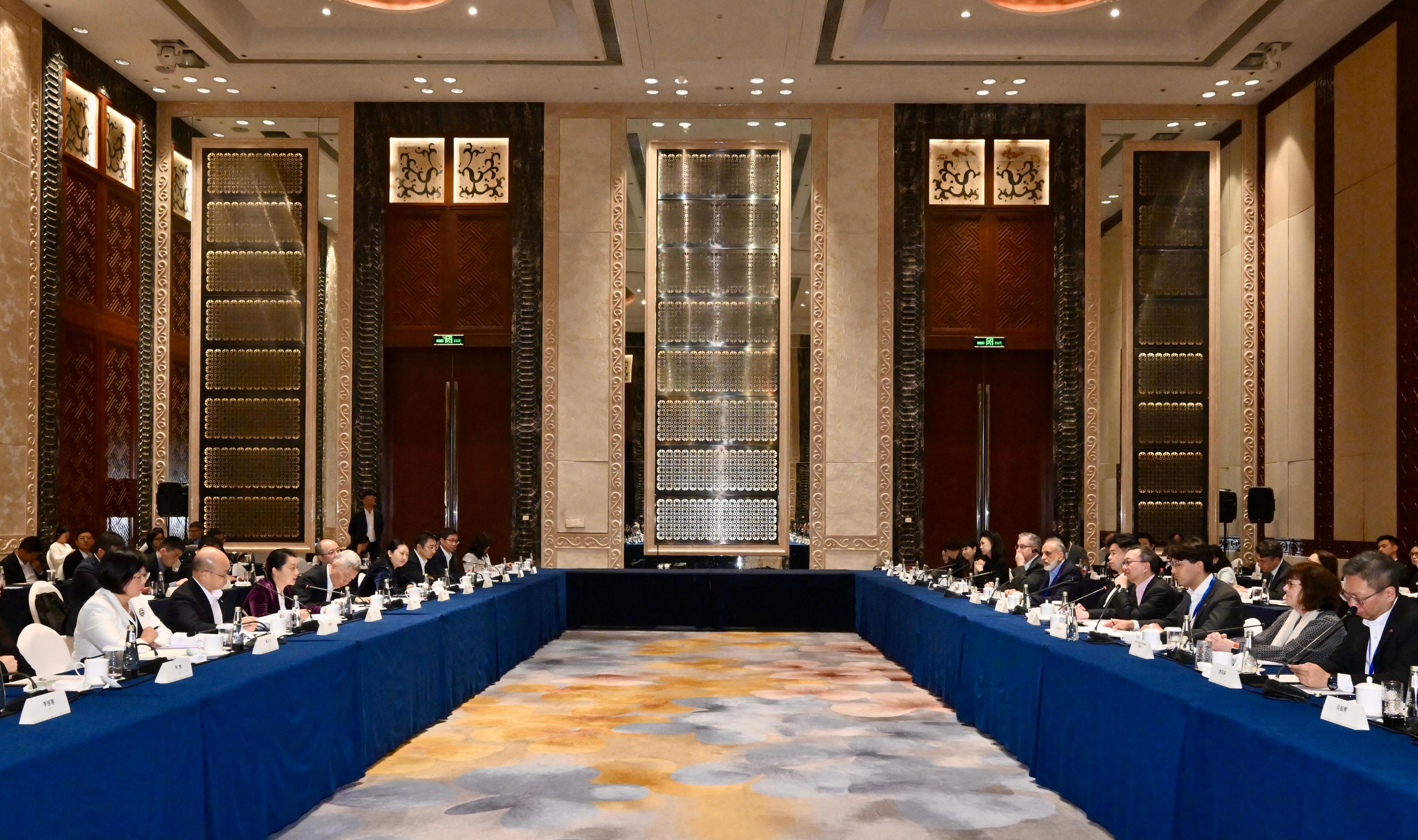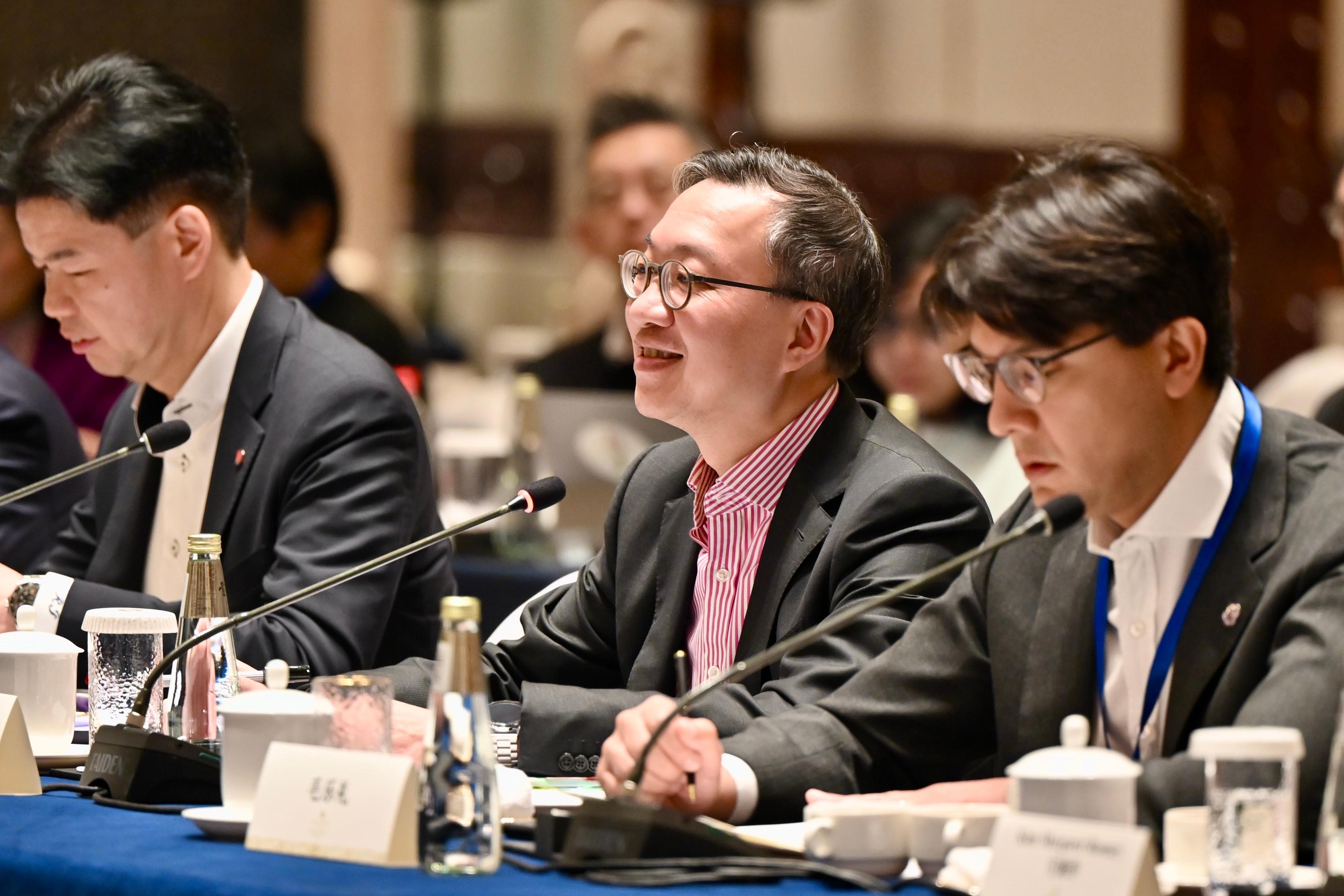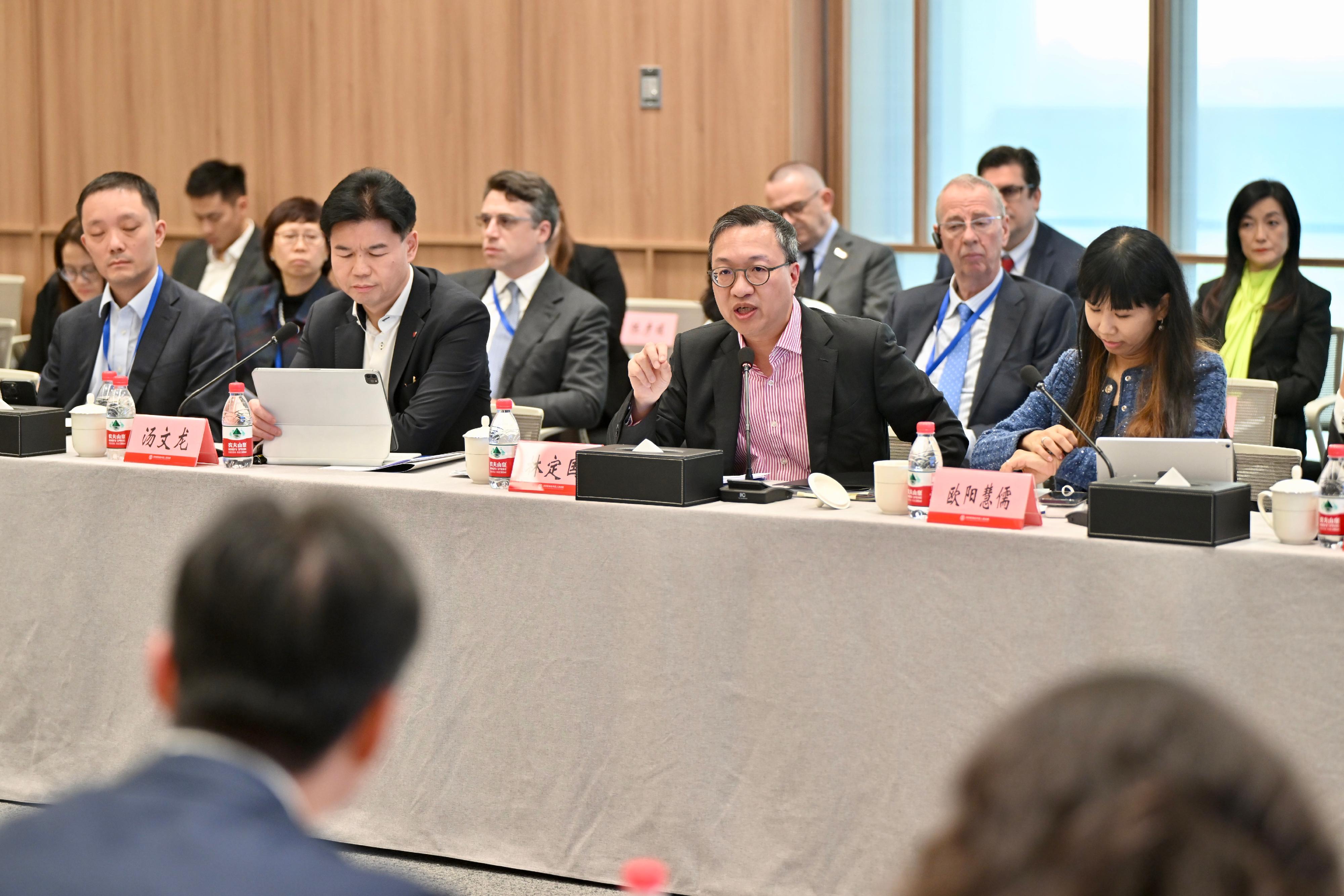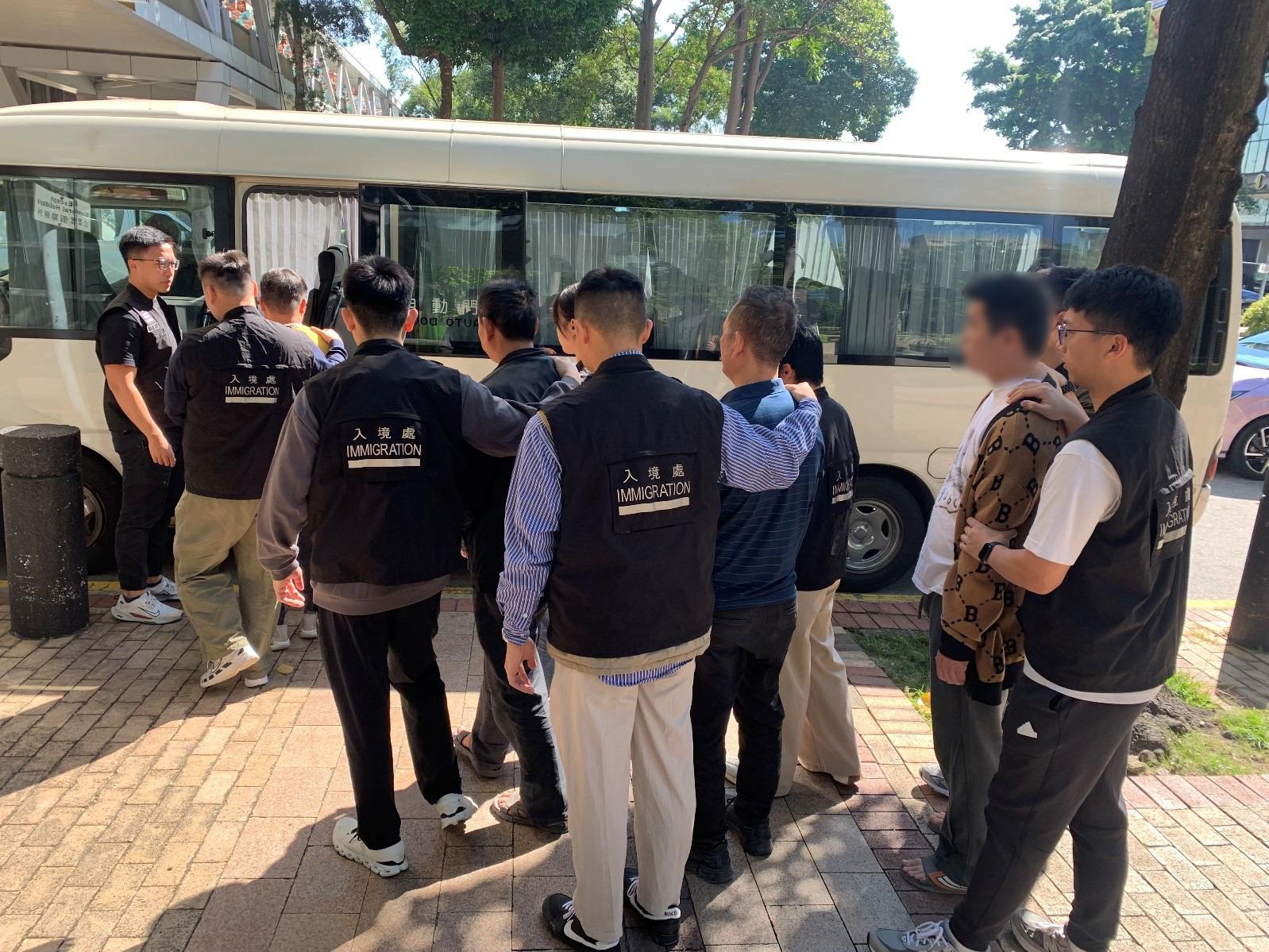SJ leads delegation of Hong Kong foreign-related legal talent to continue GBA visit in Shenzhen (with photos)
The Secretary for Justice, Mr Paul Lam, SC, leading a Hong Kong delegation of foreign-related legal talent comprising representatives from the Law Society of Hong Kong and the Hong Kong Bar Association as well as local, international and registered foreign law firms, including various non-Chinese lawyers and GBA lawyers, departed for Shenzhen today (December 6) to continue his visit to the Guangdong-Hong Kong-Macao Greater Bay Area (GBA).
Upon arrival in Shenzhen this morning, they called on Deputy Secretary-General of the Shenzhen Municipal People's Government Ms Wu Jing. They had a meeting with representatives from the Hong Kong and Macao Affairs Office of Shenzhen Municipal People's Government, the Justice Bureau of Shenzhen Municipality, Shenzhen Lawyers Association and the Authority of Qianhai Shenzhen-Hong Kong Modern Service Industry Cooperation Zone of Shenzhen Municipality to gain a better understanding of the latest developments of Shenzhen on various fronts, including innovative technology, and to explore strengthening co-operation on legal services between the two places.
At noon, Mr Lam and the delegation visited the Shenzhen Reform and Opening-Up Exhibition Hall at the Shenzhen Museum to learn more about the city's development and the history and achievements of Guangdong's reform and opening up.
Mr Lam and his delegation then visited the Shenzhen Qianhai Cooperation Zone People's Court (Qianhai Court) and held discussions with judges from the China International Commercial Court of the Supreme People's Court, the High People's Court of Guangdong Province and the Qianhai Court, as well as representatives from the China International Economic and Trade Arbitration Commission, the Shenzhen Court of International Arbitration, the Mediation Centre of the China Council for the Promotion of International Trade Shenzhen Municipal Committee, the Benchmark Chambers International & Benchmark International Mediation Center, and Shenzhen lawyers specialising in foreign-related matters. The meeting enabled the delegation to gain a better understanding of the latest developments of the China International Commercial Court and the construction of a multifaceted dispute resolution mechanism. Through discussions on topical issues relating to foreign-related commercial disputes and sharing practical experiences in tackling related issues, participants explored specific directions for the Hong Kong legal sector to make more contributions.
Mr Lam and his delegation will visit BYD Company Limited's headquarters in Shenzhen tomorrow morning (December 7) and exchange views with the company's representatives to learn about the latest developments of the company's global business and its demand for cross-border legal services. They will conclude their visit and return to Hong Kong tomorrow afternoon.







